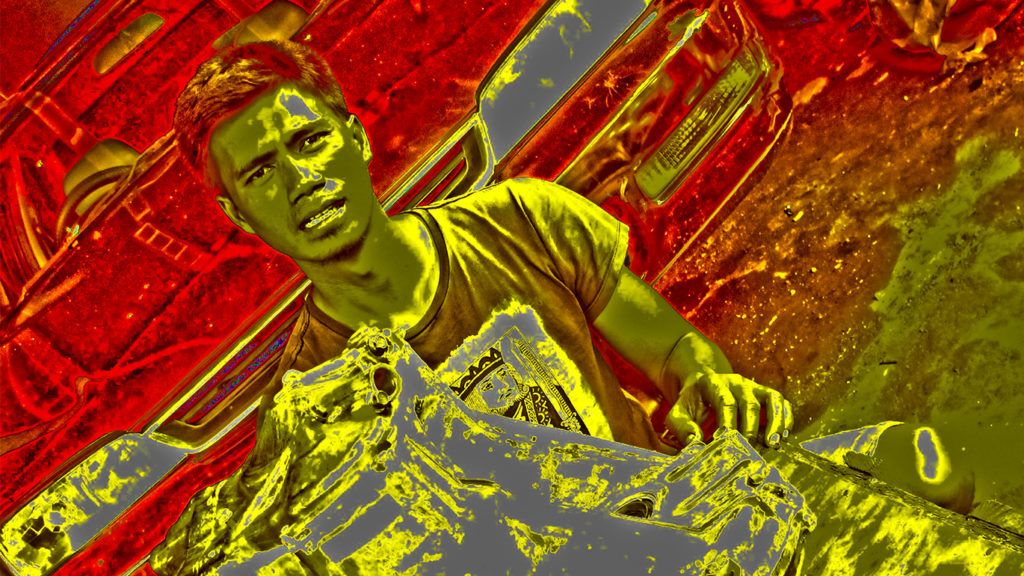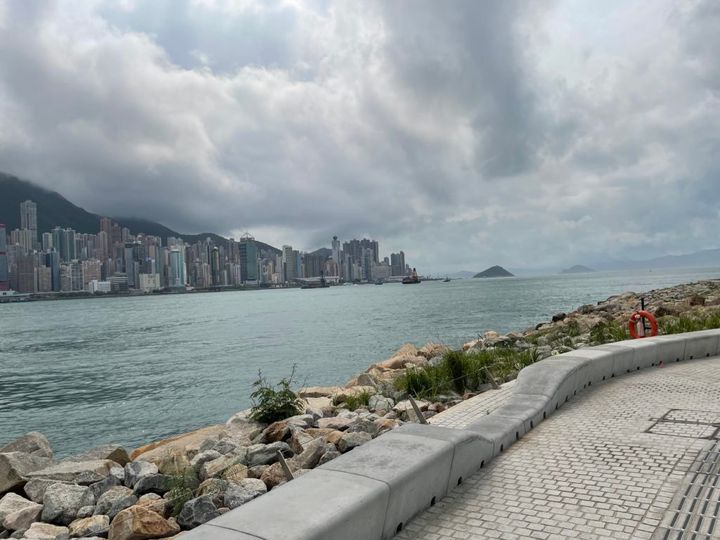Translated by David Ownby[i]
The coronavirus is a system test. It appears that Asia has a better control of the pandemic than Europe. In Hong Kong, Taiwan and Singapore there are very few people infected. Taiwan has 108 cases and Hong Kong 193. In Germany, by contrast, in a much shorter time frame, there are already 15,320 confirmed cases, and in Spain 19,980 (data from March 20). South Korea is already past the worst phase, as is Japan. China as well, the country where the pandemic originated, has it largely under control. Yet neither in Taiwan nor in South Korea have people been forbidden to leave their homes, nor have shops and restaurants closed. Meanwhile we are at the beginning of an Asian exodus from Europe. Chinese and South Koreans want to get back to their countries, where they feel safer. Prices of airline tickets have soared. Tickets for China or South Korea are almost impossible to find.
Europe is failing. The number of infections increases exponentially. It looks as if Europe is unable to control the pandemic. Hundreds of people are dying every day in Italy. They are taking older patients off ventilators to help younger ones. But we also see useless overreactions. Border closures are clearly a desperate expression of sovereignty. We feel that we are back in the era of sovereignty. The sovereign is the one who decides about the state of exception. The sovereign is the one who closes the borders. But this is an empty display of sovereignty that serves no purpose. It would be much more useful to increase cooperation within the Eurozone than to crazily close the borders. Meanwhile, Europe has prohibited foreigners from entering, an act that is totally absurd in view of the fact that Europe is precisely the place where no one wants to come. It would make much more sense to forbid Europeans from leaving, to protect the world from Europe. After all, Europe is at this moment the epicentre of the pandemic.
Asia’s Advantages
In comparison with Europe, what advantages does the Asian system offer that have proven efficient in battling the pandemic? Asian states like Japan, South Korea, China, Hong Kong, Taiwan and Singapore have an authoritarian mentality, which comes from their cultural tradition (Confucianism). People are less recalcitrant and more obedient than in Europe, and they have more trust in the state. Not only in China, but also in South Korea and Japan, everyday life is organized much more strictly than in Europe. And above all, to combat the virus, Asians are strongly committed to digital surveillance. They believe that big data holds enormous potential to defend against the pandemic. One might say that in Asia, it is not only the virologists and epidemiologists who fight the virus, but especially the computer scientists and the big data specialists. A paradigm change that Europe has yet to experience. The apologists for digital surveillance will argue that big data saves lives.
Critical consciousness of digital surveillance is practically non-existent in Asia. There is some discussion of data protection, but only in liberal countries like Japan and South Korea. But no one is upset at the authorities’ frenzy to amass data. Meanwhile, China has introduced a system of social credit unimaginable to Europeans, which facilitates a comprehensive assessment or evaluation of its citizens. All citizens are to be consistently evaluated for their social conduct. In China, there is no moment of daily life that is not under observation. Every mouse click, every purchase, every activity on social media is noted. Points are deducted for whomever runs a red light, has dealings with critics of the regime, or posts critical comments on social media. At which point life can become very dangerous. By contrast, people who buy healthy food online and read magazines favourable to the regime earn points. Those with enough points obtain a travel visa or cheap credit. By contrast, those who fall below a certain number could lose their job. This digital surveillance is possible in China because there is an unrestricted exchange of data between Internet providers and mobile phones and the authorities. There is practically no data protection. The term “private sphere” does not exist in the vocabulary of the Chinese.
In China there are 200,000,000 surveillance cameras, many of them equipped with high-level facial recognition. They capture even the moles on your face. It is not possible to escape from the surveillance cameras. These cameras, equipped with artificial intelligence, can observe and evaluate any citizen in public spaces, in the stores, in the streets, in the train stations, and in the airports.
All of this digital surveillance infrastructure has proven to be extremely effective in containing the epidemic. When someone comes out of the train station in Peking, he is captured automatically by a camera that takes his body temperature. If the temperature is too high, all of the people seated in the same train car as him will receive a notice on their mobile phones. It is not for nothing that the system knows who was seated where in the train. Social networks say that even drones are being used to enforce quarantines. If someone breaks quarantine secretly, a drone flies over and orders him to return to his residence. Maybe it even prints out a fine and drops it on him, who knows? A system which would be dystopic for Europeans, but which, as for as one can tell, does not spark resistance in China.
Asian states have an authoritarian mentality. And Asian citizens are more obedient.
Neither in China, nor in other Asian countries like South Korea, Hong Kong, Singapore, Taiwan and Japan does there exist a critical consciousness of digital surveillance and big data. Digitization instead intoxicates them. This is also due to cultural reasons. Collectivism reigns in Asia. There is no extreme individualism. Of course, individualism is not the same as selfishness, which is also very widespread in Asia.
Big data appears more effective in combating the virus than the absurd border closings now underway in Europe. However, because of data protection, a digital battle against the virus is not possible in Europe as it is in Asia. Chinese mobile phones companies and internet providers share sensitive client data with state security services and with health ministries. Hence, the state knows where I am, whom I am meeting, what I do, what I look for, what I think, what I eat, what I buy, where I drive to. In the future maybe the state will also control my body temperature, weight, blood sugar level…A digital biopolitics to go along with the digital psychopolitics that actively controls people.
In Wuhan, thousands of teams of digital investigation were set up to search for infected cases on the sole basis of technical data. Basing themselves exclusively on big data, they evaluate who is potentially infected, who needs to be under observation, and who ultimately needs to be isolated in quarantine. Thus, for the pandemic, too, the future is in digitalization. Perhaps we should even redefine sovereignty in light of the epidemic. The sovereign is now the one with the data. When Europe declares a state of emergency and closes its borders it is clinging to old models of sovereignty.
The lesson of the epidemic should be the return of the manufacture of certain medical and pharmaceutical products to Europe
Not only in China but in other Asian countries, digital surveillance has been fully exploited to contain the epidemic. In Taiwan, the state sent simultaneous text messages to all citizens to find people who had been in contact with someone infected, or to inform citizens concerning places and buildings where contagious people had been. Very early on, Taiwan used an algorithm to locate possible infected people based on the trips they had made. In South Korea, whoever approaches a building where an infected person has been receives an alarm via the Corona-app on his mobile phones. All places where infected people have been found are registered in the app. Little consideration is given to data protection or the private sphere. In all buildings in South Korea, surveillance cameras are installed on every floor, in every office, and in every shop. It is practically impossible to move in public space without been filmed by a surveillance camera. With mobile phones data and video, the profile and complete movements of an infected person can be produced. The movements of all infected cases are published. It may happen that secret affairs are uncovered. In the offices of the Ministry of Public Health in South Korea, there are people called “trackers” who, day and night, do nothing other than watch video feeds to fill out the movement profiles of infected people and find others who have been in contact with them.
An exodus of Asians from Europe has begun. They want to return to their countries because they feel safer there.
There is a striking difference between Asia and Europe regarding protective masks. In South Korea, practically no one goes out without a special respiratory mask capable of blocking the virus. These are not regular surgical masks, but instead special masks with filters, also worn by doctors who treat the sick. In the past few weeks, the priority issue in South Korea has been the supply of masks for the population. Huge lines formed outside pharmacies. Politicians were evaluated according to how quickly they supplied masks to the entire population. New machines to make the masks were built as quickly as possible. At the moment, it appears that the supply is functioning well. There is also an app informing the population which nearby pharmacy still has masks available. I think that these protective masks, which have been supplied to entire populations in Asia, have played a decisive role in fighting the epidemic.

The South Korean wear their protective masks even at work. Politicians wear their protective masks while making their public appearances. Even the South Korean president wears it to set an example, even during press conferences. By contrast, it is often said in Europe that they don’t do much good, which is nonsense. Then why do doctors wear protective masks? But you have to change masks frequently, because when they get humid, they lose their filtration function. However, South Koreans have developed a “coronavirus mask” made of nanofibers which can even be washed. They say that it can protect people against the virus for a month. This looks to be a very good solution while we wait for vaccines and medicines. In Europe, by contrast, even doctors have to travel to Russia to find them. French president Emmanuel Macron has ordered the confiscation of masks to be distributed among medical personnel. But what the personnel received were the normal masks without filters, but with a note attached saying that they were adequate protection from the virus, which is a lie. Europe is failing. What good does it do to close stores and restaurants if people keep crowding onto subways and buses during rush hour? How can you maintain social distancing? Even in supermarkets it is almost impossible. In such situations, protective masks genuinely save human lives. A society of two classes is taking shape. Those with private cars expose themselves to less risk. Even normal masks are useful if worn by those infected, because then they will not spread the virus.
In the age of “fake news,” we grow apathetic toward reality. But here, a real virus, not a computer virus, is causing problems
In European countries almost no one wears a mask. Those that wear them are Asian. My fellow countrymen living in Europe complain that people look at them funny when they wear them. Behind this are cultural differences. In Europe a form of individualism prevails that comes with the habit of leaving the face uncovered. Only criminals go around wearing masks. But now, with all the images of Korea in the media, I have become so used to seeing masked people that the bare faces of my European fellow citizens strike me as almost obscene. I too would like to wear a protective mask, but there are none to be found here.
In the past, the manufacture of masks, like that of so many other products, was outsourced to China. This is why we cannot find masks now in Europe. Asian states are attempting to provide protective masks for their entire populations. In China, when there began to be shortages there too, they refitted factories to produce masks. In Europe, not even health care workers can find them. While people without protective masks continue to crowd the buses and the subways to go to work, requiring people to stay home is logically pointless. How can you keep social distance in buses and subways at rush hour? A lesson we should learn from the pandemic should be the importance of returning the manufacture of certain products, like protective masks and medical and pharmaceutical products to Europe.
Despite all the risk, which should not be discounted, the panic caused by the coronavirus is out of proportion. Not even the “Spanish flu,” which was much more lethal, had such devastating effects on the economy. What is the true cause of this? Why does the world react with such panic to a virus? Emmanuel Macron has even talked about a war with an invisible enemy that we have to defeat. Are we really facing a return of the enemy? The Spanish flu developed in the middle of the First World War. At that point, everyone was surrounded by enemies. No one would have compared the epidemic with a war or an enemy.
But today we are living in a completely different society.
In fact, we have been living without enemies for a long time. The Cold War ended a long time ago. Recently, even Islamic terrorism seems to have moved far away. It was exactly ten years ago that I defended in my book The Burnout Society the thesis that we are living in an era when the immunological paradigm, based on the negativity of the enemy, has lost its validity. Like during Cold War times, when our societies, organized immunologically, lived surrounded by frontiers and valleys, preventing the rapid circulation of goods and capital. Globalization has removed all of those immune thresholds to allow for the free movement of capital. This includes even promiscuity and permissivity in the broadest sense, which have spread through all vital areas and eliminated the negativity of the unknown and of the enemy. The dangers that haunt us today come not from the negativity of the enemy, but from an excess of positivity, which is expressed as excess performance, excess production, and excess communication. The negativity of the enemy has no place in our unlimitedly permissive society. Repression by others gives way to depression, exploitation by others gives way to voluntary self-exploitation and self-optimization. In the performance society, one wars above all against oneself.
Immunological thresholds and border closings
So, in the midst of this society so immunologically weakened by global capitalism, the virus suddenly breaks out. In full panic, we return to our immunological thresholds and we close the borders. The enemy is back. We are no longer fighting ourselves, but rather the invisible outside enemy. The disproportionate panic caused by the virus is a social, and even global, immune reaction to the new enemy. The immune reaction is so strong because we have been living for a long time in a society without enemies, in a society of positivity, and now the virus is seen as a permanent terror.
But there is another reason for this immense panic, and once again it has to do with digitalization. Digitalization eliminates reality. Reality is experienced through the resistance it offers, which can be painful. Digitalization, and the entire “like” culture, eliminates the negativity of resistance. And the post-fact era of fake news and deepfakes gives rise to an apathy regarding reality. But this is a real virus, not a computer virus, that is causing the commotion. Reality and resistance are once again being perceived in the form of an enemy virus. The violent and exaggerated panic reaction to the virus is explained by the shock of this reality.
The panicked reaction of the financial markets to the epidemic is a larger expression of the panic already inherent in these markets. The extreme convulsions in the world economy make the markets very vulnerable. Despite the constantly rising curve of the stock index, the risky monetary policy of the issuing banks has, in recent years, generated a suppressed panic that was waiting for the crash. Probably the virus was just the straw that broke the camel’s back. What is reflected in the panic of the financial markets is less the fear of the virus and more the markets’ fear of the markets. The crash might have occurred even without the virus. Perhaps the virus is only the prelude to an even greater crash.
Žižek argues that the virus will deal a mortal blow to capitalism, and evokes a dark communism. He’s wrong.
The Slovenian philosopher Slavoj Žižek (b. 1949) argues that the virus will deal a mortal blow to capitalism, and evokes a dark communism. He even believes that the virus can bring down the regime in China. Žižek is wrong. None of this will happen. China can now sell its state digital regime as a model of success against the pandemic. China will show off the superiority of its system with even greater pride. And after the pandemic, capitalism will continue with even greater vigour. Tourists will continue to travel the planet. The virus cannot replace reason. It is possible even we in the West will adopt a Chinese-style state digital policy. As Naomi Klein has said, disaster is a propitious moment to establish a new system of government. The triumph of neoliberalism was also often preceded by crises that caused disasters. This is what happened in South Korea and in Greece. Perhaps after the shock caused by this virus Europe will install a digital police state like that in China. Should this happen, as the Italian philosopher Giorgio Agamben (b. 1942) fears, the state of exception will become the normal situation. And then the virus will have succeeded where even Islamic terrorism could not.
The virus will not defeat capitalism. The viral revolution will not occur. No virus can bring about the revolution. The virus isolates us and indivualizes us. It creates no strong collective feeling. In a certain sense, we are all alone taking care of our own survival. The solidarity required to keep our mutual distance is not a solidarity that allows us to dream of a different society, a society more peaceful, more just. We cannot leave the revolution in the hands of this virus. We believe that after this virus will come a human revolution. It is US, PEOPLE blessed with REASON, who must rethink and radically restrain destructive capitalism, as well as our unlimited and destructive mobility, to save ourselves, to save our climate, and to save our beautiful planet.
[i] This translation was originally published by Reading the China Dream: https://www.readingthechinadream.com
The illustration of this article by Penny Demertzi
Many thanks, Postcolonial Politics



